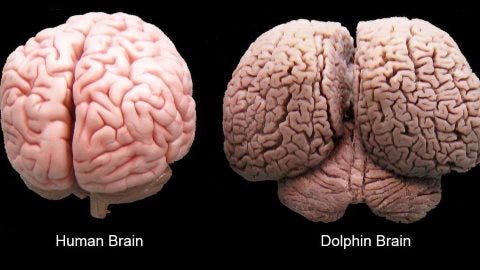Dear dolphin lovers,
If you’ve ever encountered a dolphin in the wild you’ll understand the saying that dolphins are the humans of the sea. They’re playful, curious, clever, sweet and social animals—their brains are actually larger and more complex than humans’!
In New Zealand, the Pahu (also known as Hector’s dolphin) is the world’s smallest dolphin and numbers are quickly decreasing. Below a story on what is happening 🐬
🗞️ In Climate News
🇱🇷 New illegal logging threatens Liberia’s forests amid vague ban
🇧🇴 Indigenous Bolivians flee homes as backlash to mining protest turns explosive
🇸🇹 Sao Tome joins African nations in seeking compensation from former colonizers
🇧🇷 Death toll in Southern Brazil floods reaches 75, with 100 still missing.
🇳🇬 Nigerians struggle with fuel shortages as queues form across major cities
📈 Cool Trends
🌾 Turning farm waste like green wastes into biogas and organic fertilizers
🌳 Planting trees for free by watching ads from sustainable brands
♾️ eco-story
🐬 The Kiwi of The Sea
Toitū te marae a Tāne-Mahuta, toitū te marae a Tangaroa, toitū te tangata.
This is a whakatauki, a Māori proverb widely known in Aotearoa (New Zealand) that means “if the land is well and the sea is well, so too are the people”.
The literal truths of this proverb are obvious: our lives are reliant on clean water, healthy soil, and fresh air. More and more research highlights how our mental health is connected to the natural world, as it reduces stress while inspiring creativity and joy. This reflects the spiritual beliefs of the Māori people, who have deep relationships with the land and the sea, as well as the plants and animals who also call these lands home. If our native species are threatened, so is the wellbeing of Aotearoa’s people. One of these species is the smallest and rarest dolphin in the world, the Hector’s dolphin, with one of its subspecies, the Māui dolphin, critically endangered with only 55 individuals left.
The Hector’s dolphin has different Māori names, depending on the region. Tutumairekurai and tūpoupou are common, while pahu is often used and has been adopted by Sea Shepherd New Zealand in their campaign to protect these dolphins. An old Māori belief is that spirits that have passed may come back as tutumairekurai, so they are viewed as extensions of the family, worthy of deep respect. Historically, these dolphins were so common that it was laughable to think that they would ever be classed as endangered. Now only 10,000 remain in the waters surrounding Aotearoa, meaning they are “nationally vulnerable”.
🌏 The Culture Column
📺 What we’re watching: Māui & Hector's Dolphins : An appeal from the children of Whāingaroa
📸 Profile of the week: @seashepherdnz
📖 What we’re reading: Lilly on Dolphins: Humans of the Sea, John C Lilly
🤯 Shocking fact we learnt this week: dolphins can use echolocation to locate objects up to 200m away






